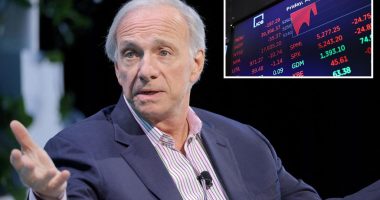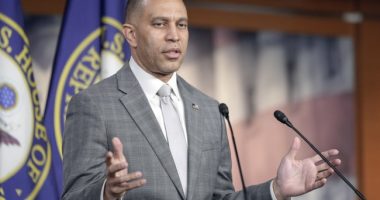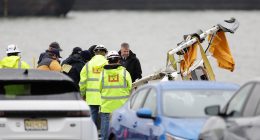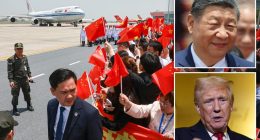Hong Kong’s leader said on Tuesday that eight pro-democracy activists who now live in the United States, Britain, Canada and Australia would be pursued for life for alleged national security offences, dismissing criticism that the move to have them arrested was a dangerous precedent.
Chief Executive John Lee expressed his support for the police’s efforts to arrest the eight.

At his weekly media briefing, Lee said anyone, including their friends and relatives, who offered information leading to their arrests would be eligible for the bounties offered by the police.
“The only way to end their destiny of being an abscondee who will be pursued for life is to surrender,” he said.
The arrest warrants were issued for former pro-democracy lawmakers Nathan Law, Ted Hui and Dennis Kwok, lawyer Kevin Yam, unionist Mung Siu-tat and activists Finn Lau, Anna Kwok and Elmer Yuen.
They were accused of breaching the Beijing-imposed national security law by committing offences such as collusion and inciting secession.
“The bounty does not change my situation or affect my personal safety at all,” he said.
“I think the bounty is ridiculous and hilarious.
“It can only be a high-profile gesture without any legal effects. Free countries will not extradite us because of that.

“It only shows how powerless the Chinese Communist Party is in response to the Hong Kong diaspora who advocates for freedom and democracy.”
“This is an outrageous interference in an Australian citizen’s rights to express himself in Australia about a city that where he built his career and still loves,” he said.
“This is China trying to extend the long arm of their so-called laws into democratic countries. And that is totally unacceptable.”
More than 260 people have been arrested under the law enacted in 2020 as part of a broad crackdown on dissent in the territory, but the rewards of 1 million Hong Kong dollars ($190,000) for information leading to each arrest were the first under the law.
The move quickly drew ire from the Australian, US and British governments, which took issue with the extraterritorial application of the security law.
Australian Foreign Minister Penny Wong said she was “deeply concerned” by the warrants.
“Freedom of expression and assembly are essential to our democracy and we support those in Australia who exercise those rights,” she said.
The US said such an application of the security law was a dangerous precedent that threatened human rights.
Read Related Also: MLB 2023 All-Star Celebrity Softball Game
But Lee insisted extraterritorial power exists in the national security laws of many countries.
He said how overseas officials and politicians commented on the government’s moves will not change his administration’s strong belief in safeguarding national security.
“I’m not afraid of any political pressure that is put on us because we do what we believe is right,” he said.
The Chinese Foreign Ministry’s office in Hong Kong also rejected the criticism, warning “foreign interference forces” to stop shielding “criminals” immediately.
These stations have been reported across North America, Europe and in other countries where Chinese communities include critics of the Communist Party who have family or business contacts in China.
Beijing denied they are police stations, saying that they exist mainly to provide citizen services such as renewing driver’s licenses.
But Hong Kong’s further crackdown did not stop these overseas activists from speaking up.
Law, who is accused of foreign collusion and inciting secession, said on his Facebook the latest development signalled he was again being targeted by China’s ruling Communist Party and that he felt the “invisible pressure”.
However, he refused to surrender.

Riot police fire tear gas and pepper spray into crowds of protestors in Hong Kong
“All I did was reasonable, justifiable and peaceful advocacy work,” the Britain-based activist said.
Mung also pledged in a statement that he would not cease advocacy work for Hong Kong labour rights abroad.
“If I were ever found guilty, my only ‘crime’ would be speaking the truth for my fellow Hong Kongers,” he said.
Hong Kong, a former British colony that returned to Chinese rule in 1997, has come under increasingly tight scrutiny by Beijing following months of mass pro-democracy protests in 2019.
Police on Monday acknowledged they will not be able to arrest the eight if they remain overseas.
Eunice Yung, a pro-Beijing lawmaker, who is the daughter-in-law of Yuen, supported the police’s move on her Facebook page, reiterating she had already cut ties with Yuen in last August.
“All his acts have nothing to do with me,” she said.







